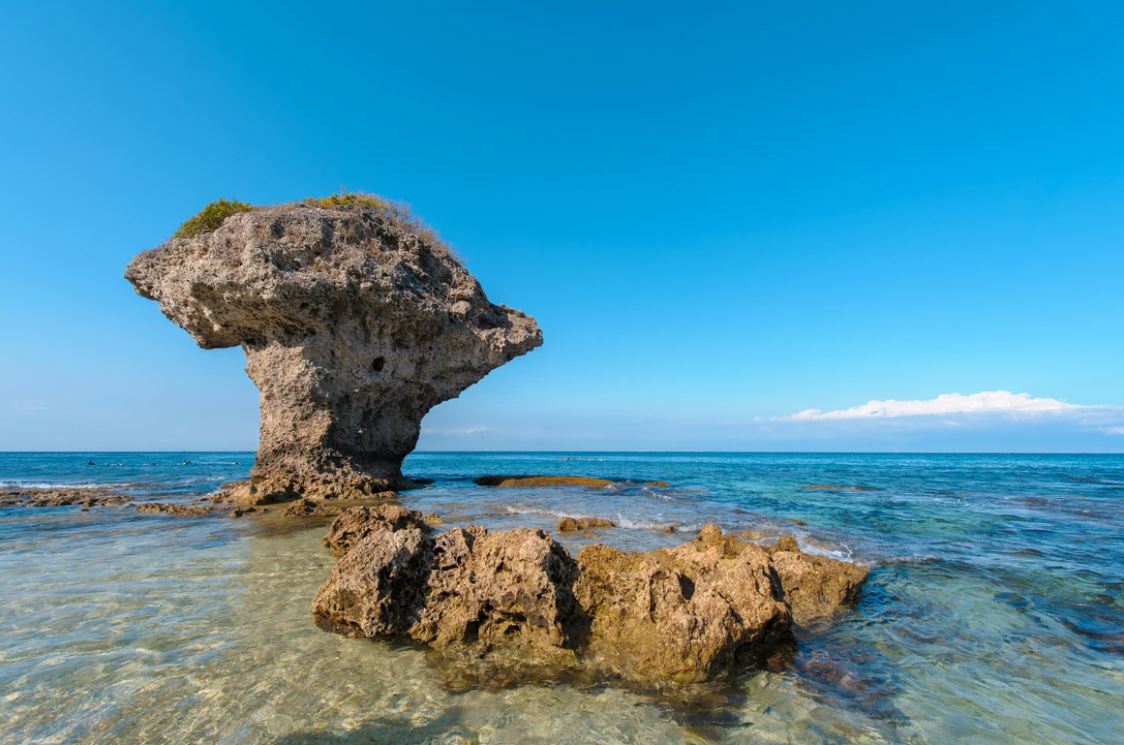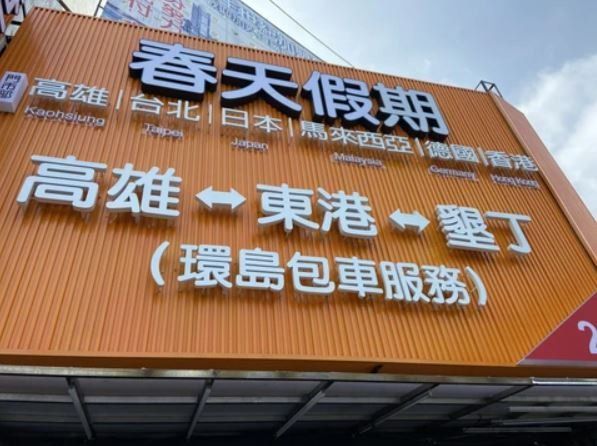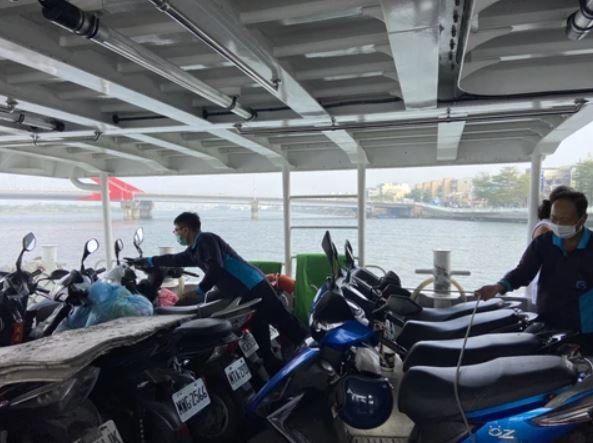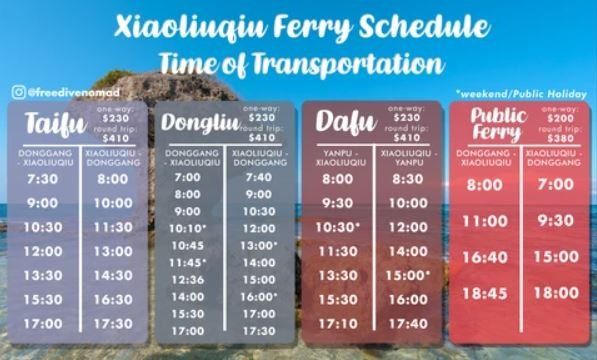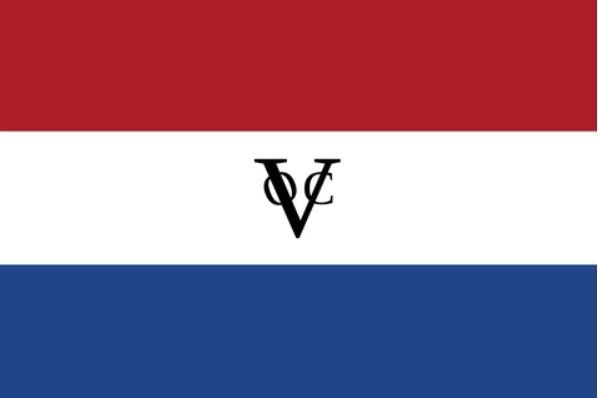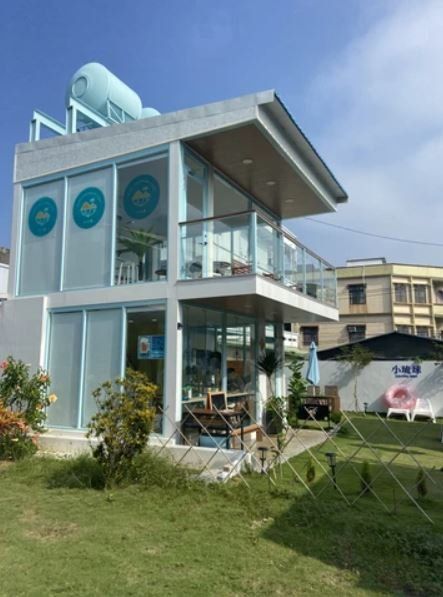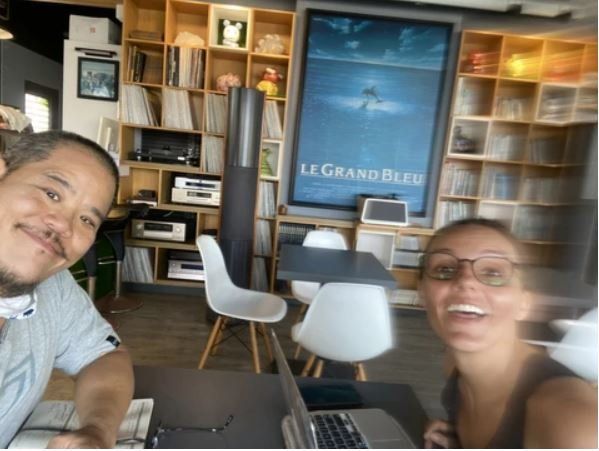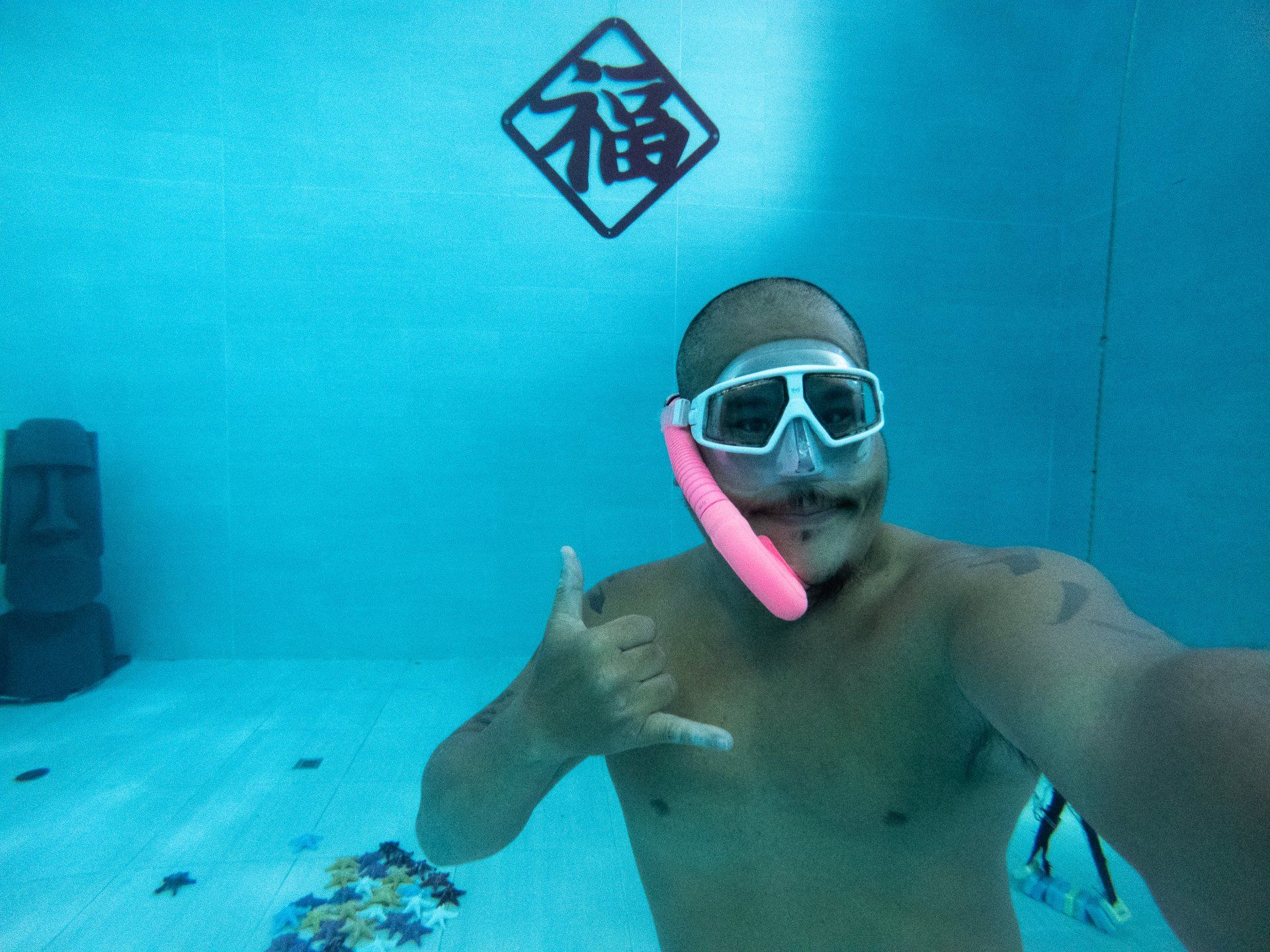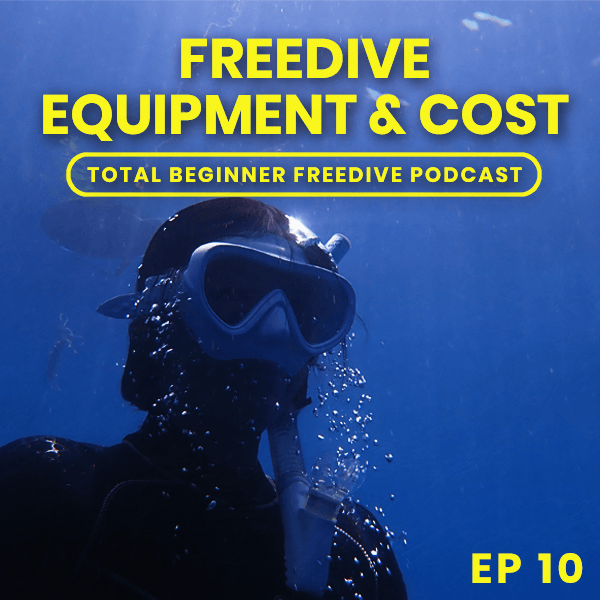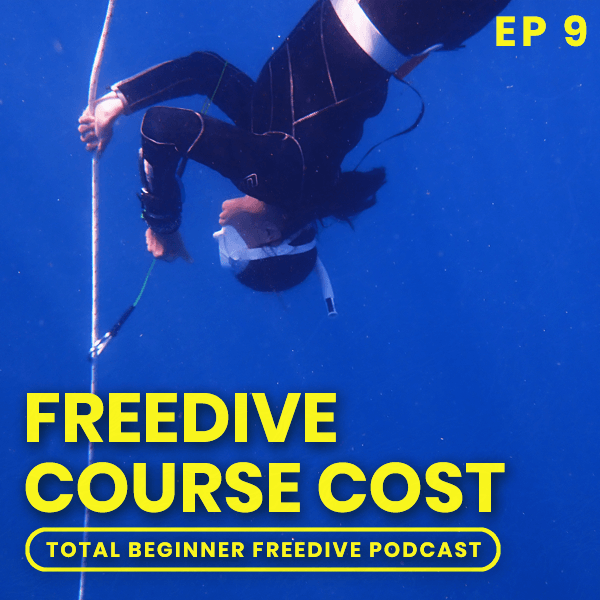Raymond Ko • May 16, 2021
Best Xiaoliuqiu Taiwan Freedive Guide (2021)
HOW TO FREEDIVE IN XIAOLIUQIU TAIWAN
UPDATE - I AM NOW TEACHING FREEDIVING IN TAIPEI AND XIAOLIUQIU IN TAIWAN, CHECK OUT MY
FREEDIVE NOMAD TAIWAN HOMEPAGE FOR MORE INFORMATION.
To me, freediving and Xiaoliuqiu as concepts are inseparable. It was one of the first places I dove when I started to take up scuba diving again (I got PADI certified in 2000 and didn’t scuba again until 2016 on Xiaoliuqiu). It was also where I took my level 1 (AIDA 2) and level 2 (AIDA 3) freediving courses, got my freedive certification and instrumental in the path I am on today where I am now a Molchanovs, AIDA and PADI certified freediving instructor and about to launch my freediving courses on Xiaoliuqiu.
And because of that, it is a very special place to me and a place I take pleasure in introducing to you.
And if you are from outside of Taiwan and want to figure out a way to get into Taiwan so you can freedive, check out my blog on how to get into Taiwan on a gold card visa.
XIAOLIUQIU BASICS
Xiaoliuqiu is an island located off the southeast coast of Taiwan covering 6.8 square kilometers with 13,000 residents. Primary mode of transport is by scooter and can ride around the entire island in 15-20 minutes.
FUN FACT - a large majority of the island only share 10 surnames
DIVING IN XIAOLIUQIU
A Google search reveals 12 freedive results and around 30 for scuba. There is A LOT of diving going on here.
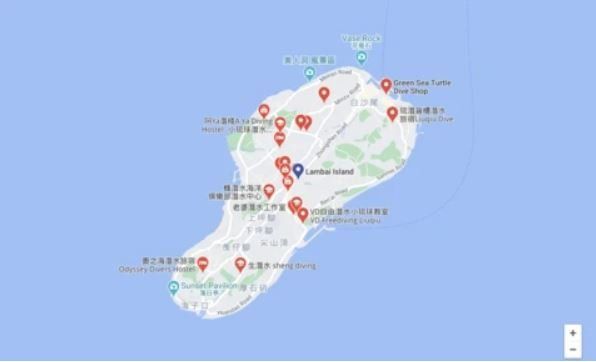
Google Map Search of diving centers on the island
Probably the more interesting looking school is Deep Soul as they are the only shop on the island that has their own pool, albeit one with very narrow single lane, though I’m not sure if they offer freediving instruction in English.
The English instructors or schools on Xiaoliuqiu that I am aware of are:
VD FREEDIVING run by Anthony and Jiayin, a French-Taiwanese couple who started their school in Taiwan in 2018. They offer the most flexibility as they can teach in English, Chinese and French and teach both in Taipei and Xiaoliuqiu. I had the pleasure of doing some pool training with them last year and I really like their positive energy and the fun they bring to their classes
KRIS ZVARITCH is a staff writer for Molchanovs and Deeperblue.com she’s certified to teach AIDA and Molchanovs and occasionally spends time in front of the camera as an underwater model (check out her Instagram) I’ve spent some time on the buoy with her in GIli Air, Indonesia and she has been a wealth of knowledge in freediving for me.
FREEDIVE TAIWAN - Where I took my first two courses. Donny Mac is also the host and creator of the ONLY freedive podcast The Freedive Cafe. One advantage of his courses is tuition includes accommodation. Donny gave me a solid foundation of skills that led me to my instructor certification.
And finally MEEEEEEEE! After spending the summer in Las Vegas teaching freediving and then making the move to Taiwan in November 2020, I’ve decided to make Xiaoliuqiu my permanent home in December 2020 and will start teaching courses in February 2021.
For more on taking an English freediving course in Taiwan check out my blog article here.
FREEDIVING IN TAIWAN AND XIAOLIUQIU
Freediving took off in Taiwan around 2016, which some crediting Instagram for that explosion and there is an estimated 50+ freedive instructors on the island with only about half a dozen or so English-speaking instructors
5 Reasons Xiaoliuqiu is the number one destination for Taiwan freedivers:
- Year round diving (most of Taiwan is tough to dive during the winter) as it has a mountain range protecting it from winds
- Short scooter rides from everywhere on the island to dive to shore to reach mooring lines with depths of 10m to 50m (Or a lot of places to dive down to around 18m to tie down your rope
- Good variety of fun diving
- Relatively easy access from whenever you are in Taiwan compared to other options like Orchid Island or Green Island.
- Water temperatures year round are suitable for 3mm wetsuit
There are other places to freedive in Taiwan, but each as their own issues. In the north near Taipei you can’t dive during the winter as it gets too cold/choppy and visibility is not as good as down south. Penghu has an abundance of fish but you can’t dive in the winter and not good for depth diving. Lanyu (Orchid Island) and Green Island lies on the Southeast coast of Taiwan and winter conditions are rough. Kenting is still possible temperature wise, but the cold front from the north mixing with the warm air from the south can make for some strong winds and unstable diving conditions.
LINE DIVING/TRAINING IN XIAOLIUQIU
Xiaoliuqiu is blessed with two mains spots on the island that are opposite of each ofter on the East/West plain. Meirendong (美人洞, meaning beauty cave), lies on the Northwest corner of Xiaoliuqiu. Dafu is located on the southeast part of the island. So if one spot is choppy and rough, the other side likely won’t be. Xiaoliuqiu also gets amazing visibility of 30m on most days.
MEIRENDONG (BEAUTY CAVE)
Access to the dive spots are a little harder on Meirendong as you have to take the stairs to access the beach (you get there on scooter with plenty of parking) and its quite rocky with moderate waves making things a little precarious. To the right is a reef to go fun diving where you can see plenty of their famous sea turtles, sometimes you can see up to 10 of them just sleeping on the reef.
To the left is line diving with the fishing nets as a sort of signpost to swim towards. A few hundred meter swim you can access depth enough to hold a beginner freediving course with instructor diving down to the bottom to tie their line to. Further beyond the fish nets, or about a 500m swim from shore, you can get 45-50m of depth depending on the current and high/low tide and you can tie onto a series of buoys surrounding the fish nets.
PRO TIP - I would bring aqua socks to this area as the beach is not sandy, its rocky and entry into the water is the same so bring them and then chuck them into the buoy when you got your fins on.
Below you can see my video of the steps down into Meirendong.
DAFU (BIG FORTUNE)
The other area for line diving is Dafu (大福) which lies on the Southeast corner of the island.
Here you will have to find a mooring line to tie a freedive buoy onto. Obviously, the further you go out, the more depth you’ll get. This is where you will require some local knowledge to get the GPS co-ordinates of where the mooring lines are. There is also a mooring line on the surface called “the Cupcake” cause it's shaped like one when its floating on the surface. But it is for boats so you will need to detach if a boat moors here. Of course you can also dive and tie down to a rock, but less feasible if you are deep diver.
Video of Dafu below
XIAOLIUQIU: AN ISLAND OF MANY NAMES
Xiaoliuqiu has been known by many different names throughout its history.
Liqiu was the name of both the island and Okinawa. Little Liqiu or Xiaoliuqiu was given as a nickname to distinguish it from Okinawa which was known as Big Liuqiu for a similar reason.
Xiaoliuqiu means, little Liqiu, Liqiu was the Chinese name of nearby Okinawa before the Japanese took it over and renamed it Okinawa. In Japanese, Liuqiu, is pronounced RyuKyu. Which is why sometimes when you use Google Translate it’ll say Small Ryuku or something or Xiao Ryukyu for Xiaoliuqiu
The island is also known as Lambai Island (also Lamay), but that’s more from the English and other European languages as it was a transcription from the aboriginal name for the island.
And A long time ago it was also known as The Golden Lion which was borrowed from its Dutch name Gouden Leeuw which was in honor of the slaughtered crew of the Gouden Leeuw, but we’ll get into what that ship means in terms of the island below.
So in summary, Xiaoliuqiu can be known as XLQ (my favorite preference), Lambai Island, Lamay, Little Liuqiu, Small Ryukyu or The Golden Lion.
Confusing, right? Let's just call it XLQ!
HOW TO GET TO XIAOLIUQIU - TRANSPORT
If you are coming from outside of Taiwan, you’ll want to fly into Kaohsiung International Airport (Code KHH). With COVID-19, there are very limited flights to Kaohsiung and thus it may be necessary to fly to the capital of Taiwan, Taipei.
From the Kaohsiung airport you’ll take a taxi or Uber (cost about NT$1000 or US$30) to Dong Gang Ferry Terminal (東港碼頭)(Dong Gang means eastern harbor in Chinese).
An alternative and cheaper way is to go to the Main Station in Kaohsiung. (Train station) and in the front there are a array of bus companies. There is one company that has schedule 7 seater van leaving once an hour at least. That costs NT$150 or about US$5 and should take about 45 minutes or 30 minutes if the driver is crazy, which usually seems to be the case. Below is the business card of the company.
Company Sign Van to Dong Gang from Kaohsiung Main Station
There is a private and public ferry to Xiaoliuqiu. I’ve never taken the public one and I’m told its not ideal as 1) its a little more expensive 2) less frequent and 3) it docks the other side of the island where there is no resources like renting scooters.
The public ferry costs NT$430 roundtrip or about US$15 and takes about 20 minutes to make the 8km journey each way. If you came on your own scooter cause you are gangsta like that, then you can also bring it on the ferry,
Below is the ferry schedule:
Once you exit the ferry you’ll be greeted by a number of people offering to rent you a scooter, this will be the primary mode of transport around the island. If you don’t know how to ride a scooter, this island will be inconvenient for you. You can rent a car and driver to take you to various spots, but it’s not worth it. My only advice for renting a scooter is to BARGAIN BARGAIN AND BARGAIN HARD. NT$400 a day is standard but you can get a serious discount if you rent multiple days.
UPDATE: Someone told me that after I published this blog that it was untrue that Xialiuqiu is inconvenient if you don't know how to ride a scooter. You can rent e-bikes which don't require a license. You can find their facebook page for Jgogo here. Below you can see the e-bike in action,
XIAOLIUQIU - AN INTERESTING PART OF TAIWAN HISTORY
In 1622, two years before the Dutch East Indies Company established a post in Taiwan, the ship Gouden Leeuw (Gold Lion) shipwrecked on Xiaoliuqiu and the crew was all murdered by the aboriginals.
In 1631 another Dutch yacht, wrecked on the island and suffered a similar fate to the Gouden Leeuw, all fifty aboard were murdered.
The Dutch, determined to seek punishment and revenge for these two incidents, sent 500 men to attack the island in 1633, which was a mix of Dutch, Han Chinese and Taiwan aboriginals soldiers. They realized that they were under-manned but made an important strategic discovery of a cave the island inhabitants retreat to during times of trouble.
Three years later a much larger force was sent to the island, cornering the inhabitants into their safety cave, blocking the entrances and exits, leaving small holes to pans of burning pitch and sulfur suffocating the inhabitants. In all, over 300 men, women and children were pulled out dead from suffocating while amongst the over 300 other inhabitants, the men were sent to work as slaves on plantations in Taiwan and Indonesia while the women were sent to Dutch homes as servants or wives.
Colonization wasn’t pretty back then.
Formosa Dutch Colonial Flag
There were some skirmishes until 1645 when Han Chinese leased the island from the Dutch in 1645 and removed the remaining 13 indigenous people, and the island has been occupied by Han Chinese until present day.
Since then Xiaoliuqiu was a fishing village until the early 21st century where it transitioned into the tourist industry which now brings hundreds of thousands of tourist a year which Brough its own problems. Because of unchecked growth of tourism, the island lost 90% of its corals before conservation helped to reverse this trend.
So, pretty interesting history to say the least.
CLIMATE AND WATER TEMPERATURE IN XIAOLIUQIU
Xiaoliuqiu average highs range form 25°C (December and January) to 32° C in the summer months. Dry season is November through March while rainy and monsoon season is from April to October with the island also vulnerable to typhoons.
Water temperature ranges from 25° C in December to 29° in the summer months. Winter months a 3mm is just good enough and mostly likely start feeling cold at the end of a session. I brought my 5.5mm just in case.
CAFES ON XIAOLIUQIU
When I first arrived for my first stint in Taiwan in 1998, Starbucks was the only place you can get reliably decent coffee. Since then, coffee culture has literally exploded with many cute cafes cropping up everywhere and Taiwanese baristas regularly winning international barista competitions.
If you seed some space to get some work done, there are two cafes on the island with decent coffee (and also one secret spot outdoors with a view of the ocean)
Islet Lemonade - Located near one of the line diving sites Dafu and run by two sweet Taiwanese chicas who used to study in the US who speak perfect English. The cafe is very cute with clean bright design with plenty of natural light and outdoor area and the coffee is BOMB.
The counter is downstairs and there are several tables upstairs all having access to power plug so you can charge up here. There is also a some chairs and tables on the outside where you can enjoy a book while caffeinating.
Coral Cafe - free divers will love this cafe with its giant sized poster of Le Grande Bleu. This is located near the ferry terminal and the one drawback is that there is only one table with access to power plugs. And judging by their website they appear to have a guest house there with some cool views of the harbor.
AND FINALLY A XIAOLIUQIU FACEBOOK GROUP
English resources are lacking for Xiaoliuqiu and most of it is blogs like this one. That’s why I started the “XIAOLIUQIU FOR FOREIGNERS” Facebook group as an English-language resource for people who want help planning their trip to XLQ and get recommendations. I hope it will become a resource where those providing English-language services can promote there and for visitors to ask questions they may have.
You may also be interested in the Taiwan Freediver's Syndicate Facebook group as well.
So please join if you are interested in visiting XLQ and ask any questions you may have.
For my Google Map list of places to eat check this out

